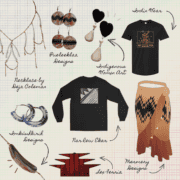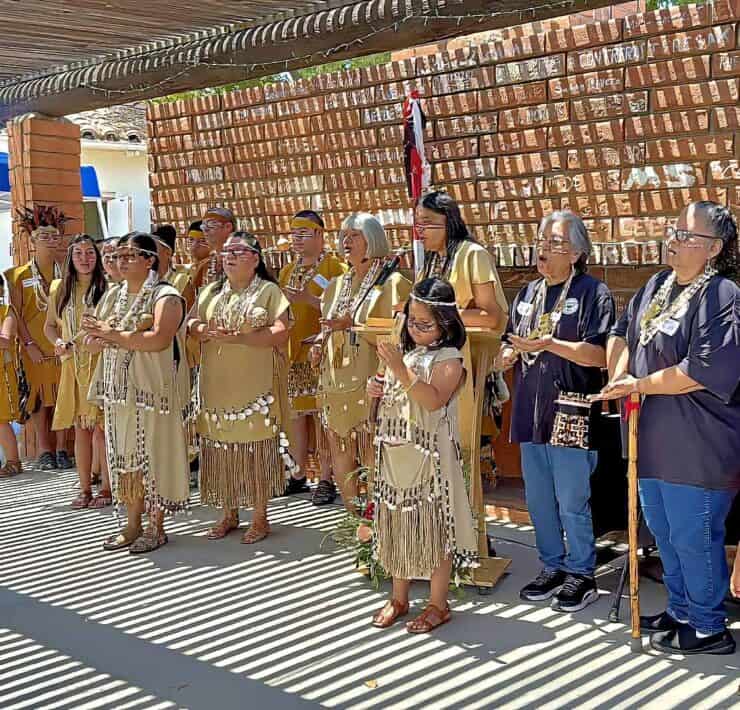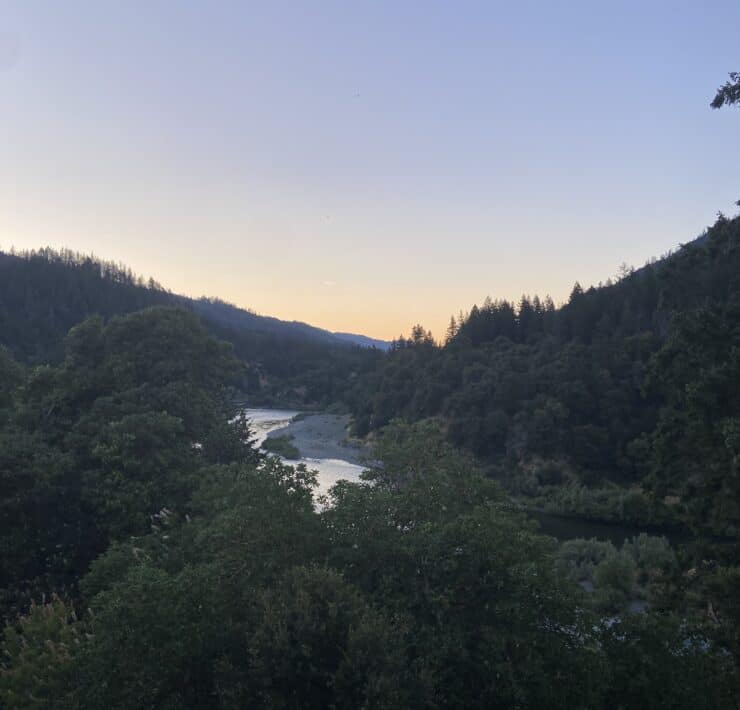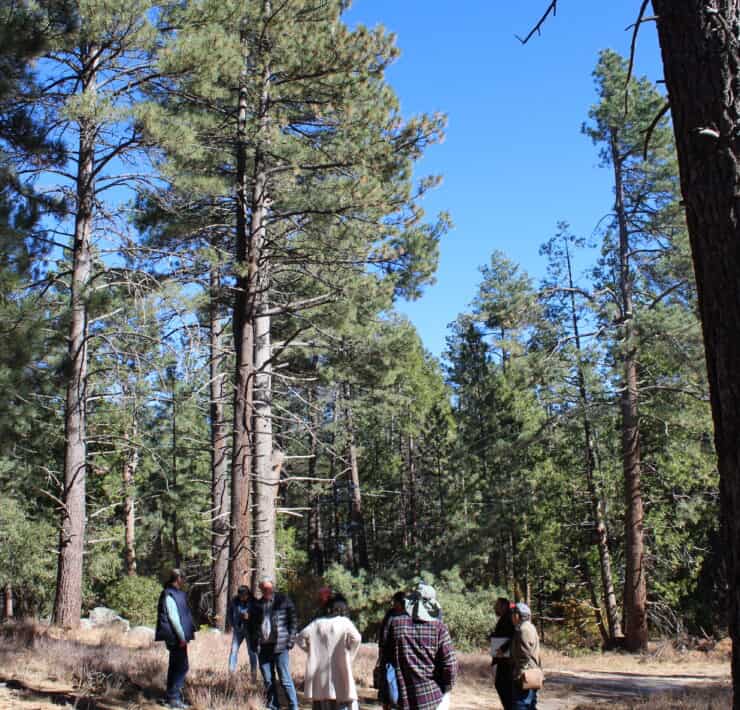
In Our Languages – Serrano
Hair-Grabbing Dance
‘Im ‘uviht Maarrênga’yam ‘ip kiikam herheermim kwenemu’ hakup wuuwerham chikt perner’wi’ ‘ip wecerham qac.
Long ago there used to be nothing but Serrano shamans here.
Chikt kwenemu’ perner’wi’ herheermim ‘ip qace’.
There were nothing but shamans here.
Aam kwana ‘uviht heermca’cu’ pa’pa’yu’ mit hayp, peenyu tervaf hayp ‘ip.
They would dance their shamanistic dances all over.
‘Aam ‘ani’ kwana’ ‘enan pana’ ‘uvya’ ‘im yarra’nkam peepichiktti’ ‘ahkw ‘ingkwa’ kwenemu’ ‘enan ‘ipyu’.
They (the shamans) knew beforehand about the arrival of the white people.
Xhiitvu’ teer ‘amatunga’ pana’ peenyiktti’ mayt.
Something told them what they were supposed to do.
‘Aam ‘ani’ kwenemu’ ‘ayee’, kwenemu’ heermca’cu’.
And then they would perform their shamanistic dances.
Vu’ howpk heermc kwan heermca’cu’.
And then one shaman would perform his ceremonial dance.
Kwan ‘ayee’ perqatki’ik yêy xhiiti’.
And then suddenly he’d grab something.
‘Ami’ akupyanu’ kwan kimay peyika’: xhiiti’ yawa’nkin.
Something would come to him out of thin air.
‘Aayec chikt puuyu’ayeew’pat, sherri’nka, yarra’nka’, puuyu’ayeewpat pee’aye’.
There were different kinds of hair, blonde ones, red ones.
‘Ama’ ni’ kwenevu’ ‘aayny puyuuhan taaqtam. Chikt ‘aayec.
And then he (the shaman) would show all the people. Nothing but hair.
‘Im pichekam ‘ahkw kwana’ xhinyim yarra’nkam pee’aye’.
It was the hair of the white people who were destined to come here.
Kwana’ kimay, key kwana’. Pana’ kwenemu’ nyihnyi’ ‘uviht.
They predicted their arrival. That’s what they used to do long ago.
Huwam wuuwerham chevêk txamu’ tuhtu’ hiit hami’ peerhermi’ ‘amatunga’.
Many would dance this with the help of their shamanistic power.
Huwam wuuwerham chevêk txamu’ tuhtu’ hiit hami’ peerhermi’ ‘amatunga’.
Something just told them. That’s what the shaman did.
‘Apamkw ‘enan ‘uvya’.
He (the shaman) predicted this (the arrival of whites).
Xhiit ‘akupya’nu teer pana’ peenyiktti’. ‘Ama’ ‘ayee’.
It told them what they (the whites) were going to do. That’s all.
Provided in partnership with the Dorothy Ramon Learning Center
From Wayta Yawa (Always Believe)
Written by Eric Elliott
Malki Museum Press (2000)










